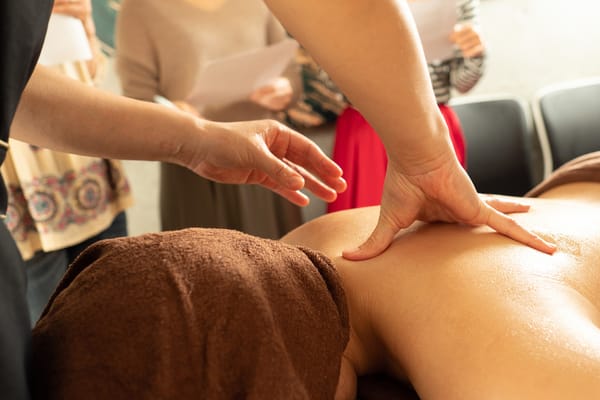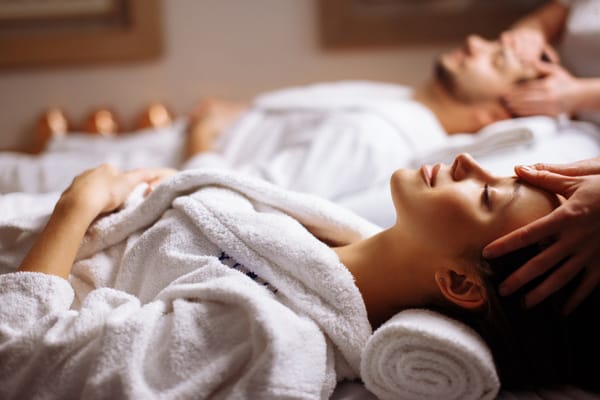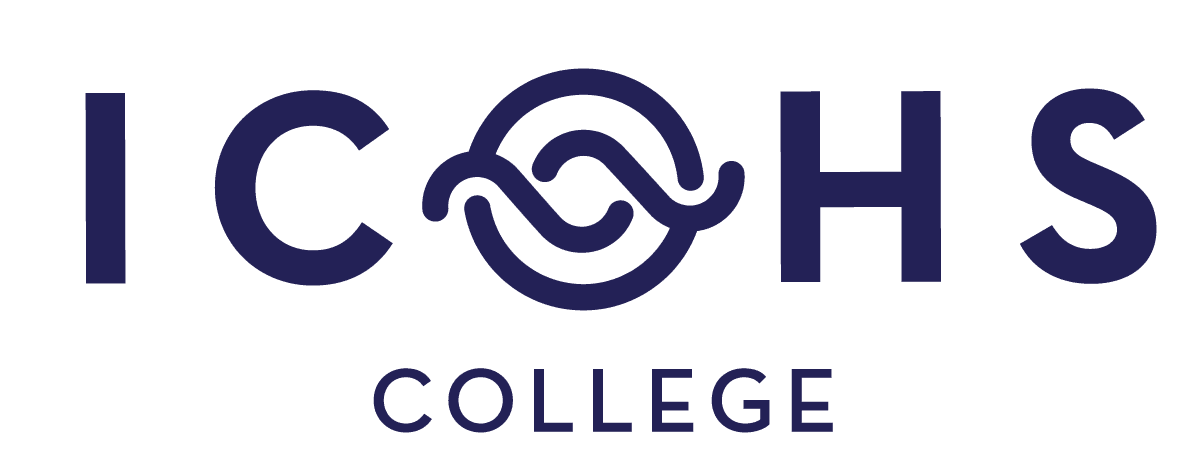Are you interested in studying massage therapy? Are you wondering what these programs are like? Can they be completed quickly? And is massage therapy school hard?
Before we dive into questions concerning how to become a massage therapist and how difficult the process may be, let’s start by defining the practice.
Standard massages can last anywhere from 15 minutes to an hour, which is why strength and endurance are essential to the occupation. In this article, we are going to walk through how to become a licensed massage therapist and what you can expect along the way.
[toc]What Do Students Find Most Difficult About Massage Therapy School?
Massage therapy is a relatively tactile profession. Training requires students to perform different massage techniques in a hands-on environment. Classroom learning is also required, as students must become familiar with basic anatomy and medical terminology before they can start administering massages.
While some may find massage therapy school difficult, those passionate about the profession should have a relatively easy time getting through it. Of course, challenges will arise. Below, we’ve outlined some of the most common hardships students experience.
Admission Requirements May Vary

Though a career in massage therapy can be exceedingly rewarding, hard work is required to complete the prerequisites and examinations necessary to begin school.
The educational requirements for most massage therapy schools are fairly straightforward. The majority of these schools require you to have at least a high school diploma or a general educational development diploma (GED) to enroll. Prior experience is not often required.
Many massage therapy schools, including the City University of New York (CUNY), require a cumulative grade point average (CGPA) of at least 2.0 or more to graduate. This kind of performance will help you advance through the clinical aspects of training included in your massage therapy program.
It is important to note that requirements will vary by school. Some may require a criminal background check, while others are more likely to provide alternatives to a high school diploma in the form of credit hours completed in an accredited college or a university.
Cost of Tuition
One of the biggest stressors associated with any post-secondary education is the cost. Of course, tuition varies depending on certain factors. The most important things to consider are the length of the program, financial aid options, and whether or not your school will cover the costs of equipment needed to practice. You should also factor in the cost of living, especially if you plan to move on-campus.
Students who choose to pursue a degree program, like an A.A.S. in Massage Therapy, should be prepared to dedicate two years to schooling. Meanwhile, students can obtain certification in much less time. For example, the Ayurvedic Massage & Bodywork Program from the Chayaveda School of Massage takes less than 60 days to complete. Schools typically charge by credit hour. So the longer the program, the higher the cost.
The duration of your program will likely be influenced by licensing requirements in your state. Not all states require massage therapists to obtain licensure before they begin to practice. Programs can typically be completed in a shorter amount of time in those areas.
States with licensing requirements tend to demand a certain number of education hours before graduates can begin work. For instance, the New York Board requires 1,000 hours of massage therapy education for all new practitioners. In California, students are required to complete just 500 hours of study and practice.
Student Burnout
While burnout is more often associated with practicing massage therapists, many students find the physical elements of their coursework demanding.
Lab hours allow therapists to perform massage techniques in real life. The American Massage Therapy Association (AMTA) recommends that its members offer a minimum of 500 in-class hours to ensure the highest quality of massage therapy education. While this aspect of school can be incredibly beneficial in terms of practice, it can take a toll on the body.
Massages can last upwards of an hour, and most massage therapists see clients consecutively. The continued stress that can place on your hands, feet, and back is considerable. Certain specialties, like Swedish massage, deep tissue massage, and Shiatsu also last longer than a standard massage and require additional strength.
Dense Coursework
As a massage therapist in training, you will be expected to learn about muscle tissue, organ location, and body mechanics. Courses often include physiology, anatomy, pathology, kinesiology, and more.
Many massage therapy programs also include portions on how to start your own business. Students will be introduced to things like financing, marketing, and bookkeeping. These courses exist in addition to the more hands-on components of the program.
How to Choose the Right Massage Therapy Program

The first step towards a massage therapy career revolves around finding the right program. Selecting the right massage school for you depends on a variety of factors, including course schedule, specialty focus, and financial aid options.
Consider Your Schedule
It’s important to avoid overloading your schedule. After all, massage schools present both academic and physical challenges. If you have professional or personal responsibilities you need to tend to while attending school, look for part-time options.
Most classroom instruction can also be taught remotely. You will need to physically attend class to perform specific massage therapy techniques, but a hybrid program gives you the flexibility to complete certain sections on your own terms.
You should also think about how long of a commitment you can make to school. This information should be readily available to you on your school website.
Consider Your Specialty
Remember, there are many different forms of massage therapy. You can choose to focus your massage career on prenatal massage, hot stone therapy, chair massage, deep tissue, gentle massage, reflexology, reiki, or aromatherapy.
This decision will also influence where you work.
Some practitioners will be employed through chains Massage Envy or MassageLuXe. Other massage therapists will work with cancer patients, at chiropractic offices, or open up their own private practice.
Look into the specific curriculum at each of your target schools and see if they sync up with your career goals. If not, it may be time to look into different programs. If you are bound to one school, consider expanding your interests.
Consider the Costs
Finding the right massage school for you also means settling on an appropriate price point. While program length and financial aid options are two of the biggest influences on tuition costs, there are other expenses to consider.
Credentials including bodywork licensing examination come with a fee. Local certifications may introduce additional costs. There’s also the matter of equipment to consider. While some schools cover the costs of textbooks and equipment, others require students purchase these items themselves.
Necessary items may include:
- Massage table: (ranges between $112 to $350)
- Massage chair (ranges between $100 to $300)
- Linens (ranges between $20 to $40)
- Oils (ranges between $10 to $40)
- Hygiene products (ranges between $7 to $60)
ICOHS College provides all students with the following tools:
- Portable Massage Table and Bolster
- Laptop
- All course books are included in tuition and fees
- An ICOHS notebook and tote bag
- Your first set of oil and lotion with hip holsters
- ICOHS T-Shirt
- CAMTC License fee reimbursement ($200)
- Mandatory CAMTC background check (live scan) covered by tuition
Students will also receive a massage table and a laptop to support their studies and future careers. The laptop is for students to keep and use for online assignments, tests, and projects. All tables are portable and come with a bolster, headrest, carry case, and are available in five different colors.
FAQs
Is Massage Therapy a Good Career?
Massage therapy is a great career with high levels of job security and opportunities for advancement. Massage therapists also report high levels of job satisfaction helping improve the quality of life among patients.
Practitioners also have the opportunity to open up their own private practice, setting their own schedules and wages. Still, the profession can be physically demanding, and measures must be taken to preserve your own health and wellness.
How Long Does it Take to Learn Massage Therapy?
To become a massage therapist, you must complete an accredited program and receive the necessary licensure. Programs range from 300 to 1,000 hours of practical training and instruction, depending on the structure.
How Much Money Do Massage Therapists Make?
Massage therapists typically earn around $20 per hour. The Bureau of Labor Statistics reported a median pay of about $43,620 per year in 2020. This same report states that employment for licensed massage therapists will balloon by an impressive 32 percent over the next decade.
Conclusion

While massage therapy school poses certain challenges, the rewards are well worth the effort. In a survey of 1,200 massage therapists, 88% reported being “very satisfied” or “satisfied” with their careers. 99% believed their work has a positive impact on their clients.
You can start your journey towards a successful career at ICOHS College. Our Professional Massage Therapist certificate program is a California Massage Therapy Council (CAMTC) approved school as recognized by the state of California. Program courses include the following subjects:
- Fundamentals of Massage
- Kinesiology and Client Assessment
- Anatomy and Deep Tissue
- Eastern Modalities
- Western Modalities
- Body Systems, Pathology, and Special Populations
- Career Development
Scholarships and title IV funding are also available to help students cover the cost of tuition. Call us to speak to one of our representatives (858) 581-9460 or contact us via email for more information on financial assistance. Financial aid is available to those who qualify.
Students attending ICOHS College will have full access to our career counseling program. They’ll also receive lifetime job placement assistance after graduation.
ICOHS College is accredited by the ACCET (Accrediting Council for Continuing Education, accet.org). To learn more about ICOHS College accreditations and licenses, visit our accreditation page.










